Top 10 Recommended Attractions in Chengdu: Experience the Charm of the Land of Abundance
Chengdu is the capital of Sichuan province and a significant urban hub in southwest China. It boasts a rich history and vibrant culture, earning it the nickname “Land of Abundance.”
Chengdu not only offers a multitude of historical sites but also tantalizing Sichuan cuisine, making it an irresistible travel destination. Below, I’ll introduce you to the top ten places you must visit in Chengdu, and I hope you enjoy your trip.
Chengdu Research Base of Giant Panda Breeding(成都大熊猫繁育研究基地)
If you’re an animal lover, a visit to the Chengdu Research Base of Giant Panda Breeding is a must. It’s the world’s largest panda conservation and research institution, home to over 100 giant pandas and other rare animals.
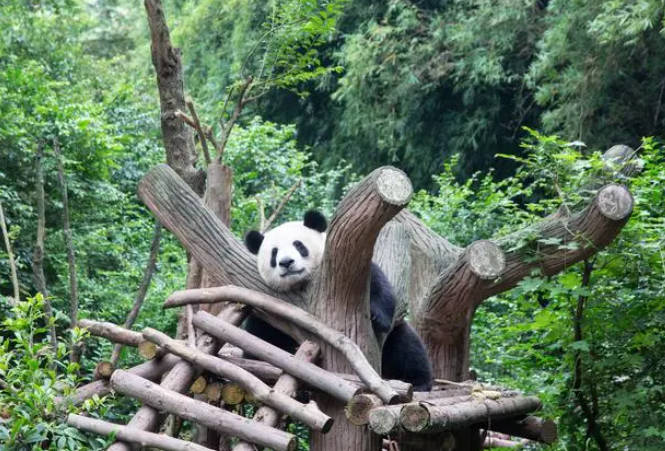
Here, you can observe pandas up close, watching them eat bamboo, play, and nap. You can even participate in volunteer activities or sponsor a panda.
Ticket: 55 RMB per person (half price for students)
Opening Hours: 8:00 AM – 6:00 PM year-round
Dujiangyan Scenic Area(都江堰景区)
Dujiangyan is a masterpiece of ancient Chinese hydraulic engineering and the world’s oldest surviving no-dam irrigation system, dating back to 256 BC. Constructed by the Qin dynasty’s Li Bing and his son, it harnesses natural terrain and water flow to divide the Min River into inner and outer rivers, serving flood control and irrigation of the Chengdu Plain.
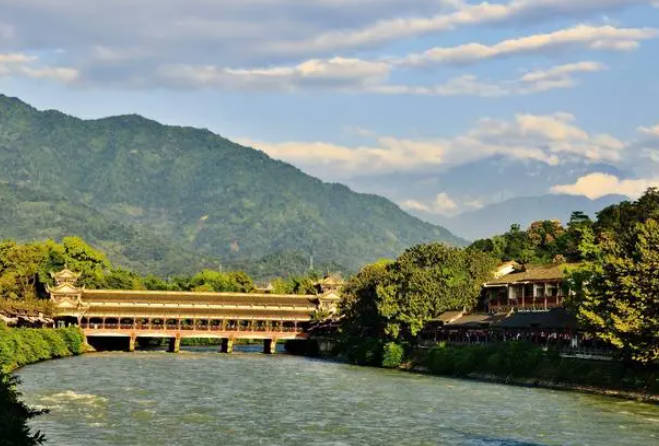
Ticket: 80 RMB per person
Opening Hours: 8:00 AM – 6:00 PM
Wuhou Shrine(武侯祠)
Wuhou Shrine is a memorial to the Three Kingdoms era Shu Han Chancellor Zhuge Liang and Emperor Liu Bei. It’s the only shrine in Chinese history where a monarch and his chancellor are enshrined together. The shrine was initially built in 223 AD near Emperor Liu Bei’s mausoleum, and Zhuge Liang was later enshrined alongside him.
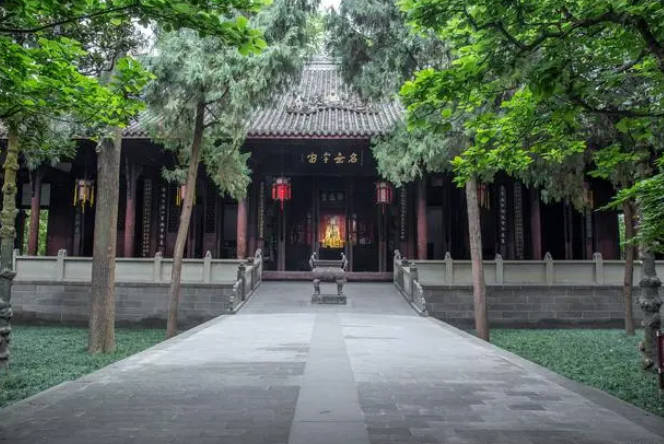
The shrine houses numerous precious artifacts and inscriptions, such as the “Three Masterpieces Stele” with text by Tang dynasty’s Pei Du and calligraphy by Liu Gongchuo and the “Wuhou Shrine Stele” with text by Ming dynasty’s Zhang Shiche and calligraphy by Gu Kaizhi.
Ticket: 50 RMB per person (half price for students)
Opening Hours: Summer: 8:00 AM – 8:00 PM; Winter: 8:00 AM – 6:30 PM
Jinli Ancient Street(锦里古街)
Jinli Ancient Street is Chengdu’s most distinctive commercial pedestrian street, preserving the essence of Qing Dynasty-era streets. The street features antique buildings and shops, where you can savor various Chengdu snacks like hotpot, skewers, and spicy wontons. It’s also an ideal place to buy souvenirs like paper-cuttings, face masks, and clay figurines.
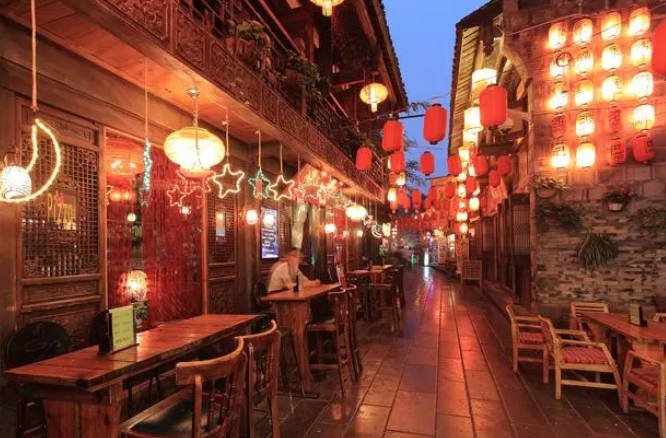
Ticket: Free
Opening Hours: All day
Chunxi Road(春熙路)
Chunxi Road is the fashion hub of Chengdu and its busiest commercial pedestrian street. It’s home to a variety of international and domestic brand stores, department stores, hotels, restaurants, and more, making it a prime destination for shopping and entertainment.
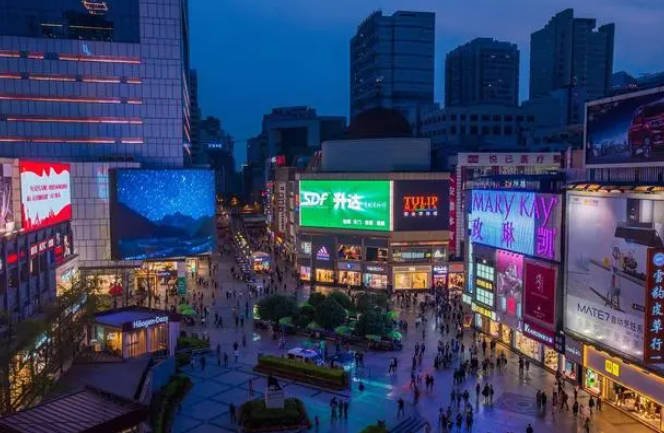
Chunxi Road also boasts historical and cultural landmarks such as Tianfu Square, Daci Temple, and Chenjiaci Alley, offering a fusion of modern and traditional Chengdu.
Chunxi Road is teeming with culinary delights, from husband and wife lung slices to dan dan noodles and ice powder, letting you indulge in gourmet cuisine while strolling.
Ticket: Free
Opening Hours: All day
Jinsha Site Museum(金沙遗址博物馆)
Jinsha Site Museum is dedicated to showcasing the ancient Shu civilization. Situated in Jinsha Village on the outskirts of Chengdu, the Jinsha Site was discovered in 2001 and dates back approximately 3,000 years, serving as the capital and religious center of the Shu state.
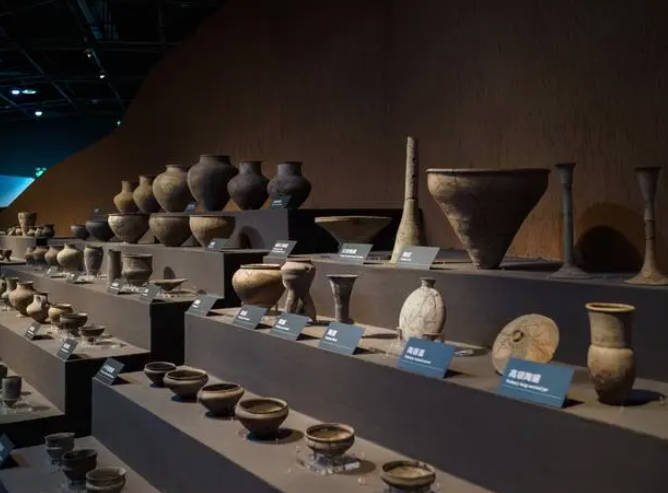
Here, you can see exquisite bronze, jade, and gold artifacts like the famous Jinsha Sacrificial Pit, gold masks, and the sun bird.
Ticket: 70 RMB per person (half price for students)
Opening Hours: 9:00 AM – 5:00 PM (last entry at 4:00 PM)
Du Fu Thatched Cottage(杜甫草堂)
Du Fu Thatched Cottage is where the great Tang Dynasty poet Du Fu once resided in Chengdu, making it one of China’s oldest literary museums.
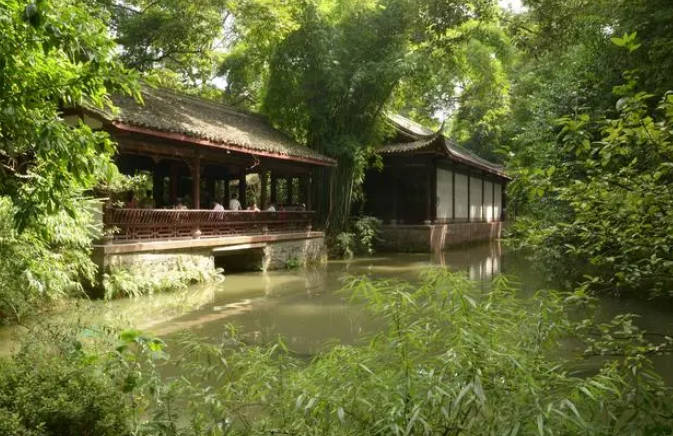
The site consists of three parts: the cottage, the garden, and the exhibition hall. The cottage was Du Fu’s residence, the garden his retreat, and the exhibition hall houses displays about Du Fu’s life and works.
Ticket: 50 RMB per person (half price for students)
Opening Hours: 8:00 AM – 6:00 PM
Wide and Narrow Alleys(宽窄巷子)
Wide and Narrow Alleys represent one of Chengdu’s most iconic historical and cultural districts, comprising three parallel ancient streets: Kuan Lane, Zhai Lane, and Jing Lane.
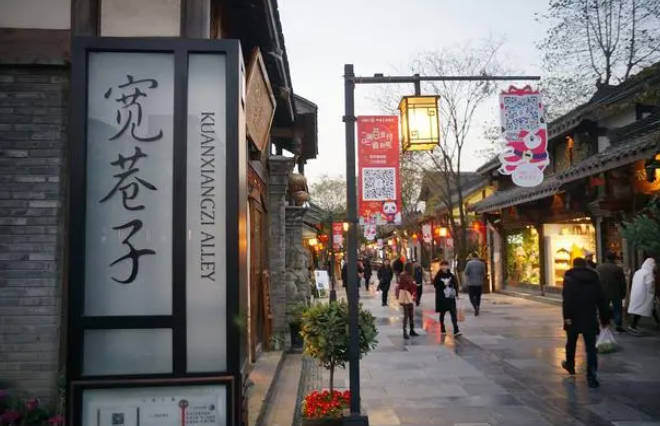
These alleys retain Qing Dynasty architectural styles and local customs. You can find old courtyards, teahouses, and inns here, as well as sample authentic Chengdu snacks like sugar oil pastries, spicy rabbit heads, and baked rolls.
Ticket: Free
Opening Hours: All day
Jiuyan Bridge(九眼桥)
Jiuyan Bridge is one of Chengdu’s liveliest nightlife areas, located along the Jinjiang River in Jinjiang District. Its name, meaning “Nine Arch Bridge,” comes from the nine arches on the bridge and the nine small water holes beneath it.
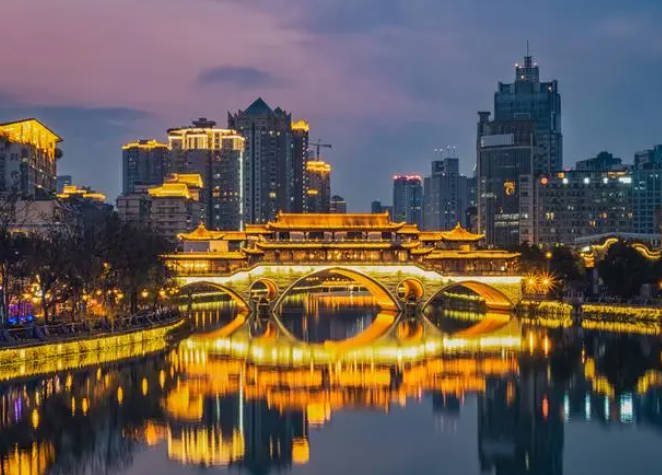
The bridge is lined with bars, restaurants, and cafes, making it a popular spot for young people to socialize and unwind. You can enjoy live music, drinks, and food while admiring the beautiful views of the Jinjiang River and experiencing Chengdu’s warmth and vitality.
Ticket: Free
Opening Hours: All day
People’s Park(人民公园)
People’s Park is the largest comprehensive park in Chengdu and a favorite destination for relaxation and entertainment among locals. The park features numerous attractions and facilities, including People’s Square, Jinshui Lake, Biyun Pavilion, and the Chen Yi Memorial Hall.
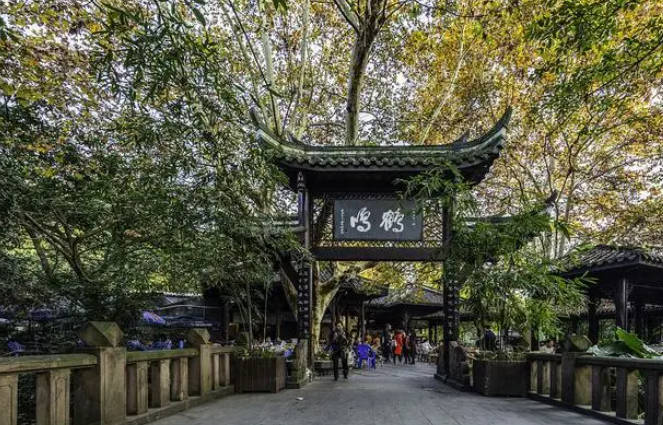
You can take leisurely walks, ride bikes, go boating, or even try your hand at fishing. The park hosts various folk activities and performances, including dancing, singing, and tea ceremonies.
Ticket: Free
Opening Hours: All day